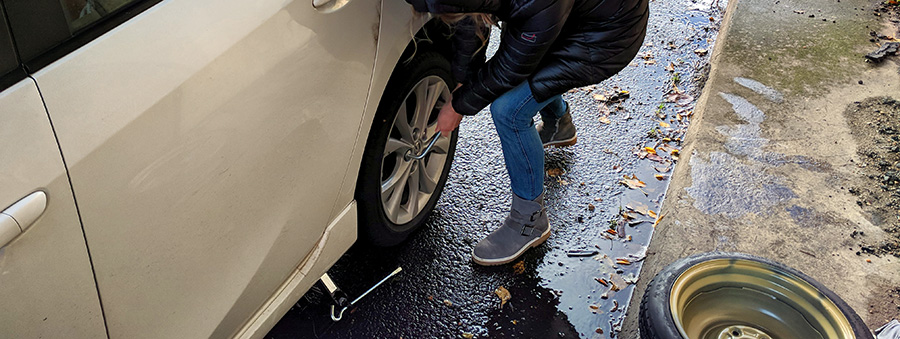Tyres and wheels are key to getting from place to place. In terms of safety on the road the tyres are one of the more important parts of the vehicle responsible for grip and handling. It is not surprising that their good condition is an important part of vehicle road worthiness check. The bad condition of the tyres and wheels accounts for about 7% of the failed MOT tests. Spare wheels are also useful to have in case of a puncture, but are these checked as part of the MOT test and can they result in a failure?

Spare wheels are checked on some of the MOT tested vehicles, in particular the vehicles fitted with external spare wheel carriers. The externally mounted spare and the carrier are both checked to make sure they are securely fitted with compatible fixings. Internally mounted spare wheels are not required to pass the MOT test, however if a defect is noticed the tester is required to let you know.
Space saving spare wheels will fail the MOT when installed instead of a road wheel. Full size spare wheels are permitted.
It is a part of the MOT Test to check that the road wheels are securely attached using the appropriate fixings. The tyres are checked for defects like excessive wear, cuts, bulges and contact with other parts of the vehicle.
Axle and suspension are also checked for fractures, corrosion, insecure or loose fixings and unsafe modifications
Join our community to receive MOT news, helpful tips, our updates and reminders.
We respect your privacy. Unsubscribe at any time using the link in the footer of the emails.